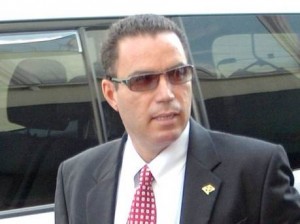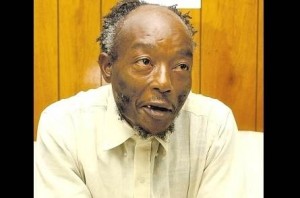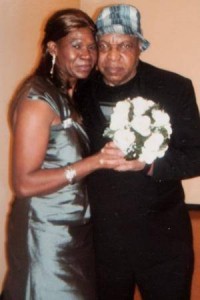LICKED THE EXIT – SUNDAY DAGGAH
She got upset because I licked her axs!
I met this girl at a club my favorite local band was playing. We chatted, had a good time and even better drinks. At the end of the night she wanted me to come over to fppp, who am I to say no, lol. Well anyway, she went down on me sucking my cox very sloppy and wet. I was like yeh this raas girl is a freak. I wanted to repay the favor so I went down on her pretty shaved pppp. As I was eating her out I flipped her over doggie style as I love eating a girl out like that. The sight of the pppp and ass bending over drives me wild. When I saw her butthole I had to stick my tongue in there. When I did, she freaked out and got mad calling me sick, cussing me out bad bad. I’m like you got to be kidding me! I was shocked. That’s the first time that I had ever had a woman react that way. Are all Jamaican/Caribbean women unwilling to try this?
VAZ SEH NOTHING LIKE DAT
Vaz says enough
After 27 years MP addresses Dianne Smith murder rumours
Sunday, March 31, 2013
FROM the grave of an innocent schoolgirl, on this Easter Sunday, comes a cry for justice against those responsible for the spilling of her blood.
But Dianne Smith cries from the after-life, not just for herself, for she knows that there is one other whose innocence has also been stolen and whose crucifixion was equally undeserved.
For 27 years, Daryl Wesley Vaz has been locked up in a prison of pain and hurt, dogged through every phase of his life by the nastiest of orchestrated rumours that, among other things, he raped and murdered Smith, a student of the Immaculate Conception High School.
Smith was on her way to school along Old Stony Hill Road on May 4, 1983 when she was raped, stabbed, strangled and her body dumped in a gully.
In a sense, Dianne Smith’s misery is over. Her lithe 14-year-old body, battered and bruised and robbed of life, is forever beyond the pale of human cruelty.
But for Daryl Vaz the misery lingers on. And it is never more painful than when he must admit to himself that — forget opponents, political and otherwise — even among party colleagues, with whom he must eat, drink and share political thought, this dreadful treachery is perpetrated. No doubt for personal and political agendas.
Yet, he draws deep consolation from a reassuring call from then Opposition Leader Michael Manley in 1986 who, “speaking as a father myself”, condemned the graffiti and accusation hurled from a political campaign at Birdsucker Lane, Barbican, St Andrew.
“He called first my father (Douglas Vaz) and then me to apologise. I have always accepted that apology as genuine and not as if he were calling to accept his party’s responsibility,” said Vaz, his face now a mask of gratitude and emotion.
Vaz is not the first and is unlikely to be the last to be wrongly accused of a crime he did not commit. The question that might never be answered is why was he targeted in the first place.
The accusation first surfaced in 1986, three years after the murder. His name never came up during the intense police investigations that followed, neither was it mentioned even once in the 1984 court trial of the two men accused of the murder.
“There is absolutely no evidence to connect him (Vaz) to the case,” said Retired Assistant Commissioner of Police Isadore ‘Dick’ Hibbert, the top detective who helped to lead the investigations 30 years ago.
“In fact, his name was never called at any time during the intense investigations started in 1983 and I am very puzzled as to why he was subsequently associated with this murder,” Hibbert told the Sunday Observer. “Whenever we were investigating a case, we looked into everything, including rumours, to find leads. The name Daryl Vaz just didn’t come up at all.”
Convinced that he could not be his own best defender, Vaz has carried the burden, maintained silence, toughing it out but always knowing that it could not be easy for his wife, children, other family members and close friends.
In a 2009 interview on the hustings, his obviously inlove wife, Ann-Marie Vaz, told a newspaper reporter that politics had damaged their marriage.
“It’s been exhausting for me as a wife and mother. To see what my husband has been through to prove his passion for the constituency has been emotionally draining,” she told writer Howard Campbell. “I never wanted anything to do with politics. It caused a lot of damage to our marriage initially.
“…I’ve always known of his persona and things that people said. Those are things I won’t get into,” she added.
Friends and supporters of the West Portland member of parliament have started to ask Vaz why has he broken his silence now and are questioning the motive for the resurgence of the rumour. Why not let this terrible thing remain in the grave where it belongs?
“Even Nelson Mandela got justice after 27 years. It’s my time now,” Vaz insisted.
The issue resurrected itself last week in a rather innocuous way, in a popular weekly feature titled ‘Crimes that rocked the nation’, written for the Sunday Observer by Sybil Hibbert, the veteran journalist and Jamaica’s greatest court reporter. She is also the wife of Retired ACP Hibbert, himself rated among the island’s top detectives of his time and, importantly, who investigated the Dianne Smith rape/murder case.
Mrs Hibbert, now in her 70s, and whose name is highly respected in the legal fraternity here, wrote: “Before dealing with the evidence that unfolded before the Home Circuit Court in this case, let me state categorically that the rumour noised abroad about the politician (Daryl Vaz), now member of parliament, being connected with, or having anything to do with this murder, is absolutely untrue.
“Apart from the fact that this politician’s name was never mentioned in the proceedings, my husband Isadore Hibbert, was one of the detectives investigating this murder. The most thorough police investigations revealed no such connections; he was early on the scene and confirms this. Besides, after spending 40 years and seven months in the Jamaica Constabulary Force, he retired with an unblemished record after acting as (high as) deputy commissioner in charge of crime for two years…”
If Vaz had wanted to maintain his silence, he could no longer. The article brought out his enemies, some internal and external, he said. In a spate of cruel e-mails ignoring the facts as stated by the lead investigator, they again accused him of the murder.
One of the e-mail authors who has been most persistent and uses the pseudonym “Anecia Brown” wrote: “All members of Jamaica media who know of the connection of Daryl Vaz to Dianne Smith murder please contact City Desk at 306-657-6442 or 306-657-6258.”
The e-mail was sent to all the media houses and individuals including Abe Dabdoub; A Creary; A J Nicholson, the foreign minister; Peter Bunting, the national security minister; and Mark Golding, justice minister.
The phone numbers when called by media houses turned out to be those of a Canadian newspaper, The Saskatoon StarPhoenix.
Responding to the Sunday Observer’s query about the e-mail, Managing Editor Heather Persson said: “No such person (Anecia Brown) works for The Saskatoon StarPhoenix and the newsroom had nothing to do with that e-mail.”
Vaz, as he has always done in face of adversity, pledged to do everything to find the truth, even after 27 years, and unmask the authors of the emails and bring them to justice, not just for himself but for others who have suffered similar attacks upon their reputation.
If there is any doubt about his seriousness, one only has to recall that he has an unrelated case in a Florida court in which he accused Jamaican-born Miami attorney David Rowe of being behind an e-mail which libelled him, former prime ministers P J Patterson and Bruce Golding, Christopher Tufton and Gordon ‘Butch’’ Stewart, among others. Rowe denied the allegations.
Born on December 15, 1963, Daryl Wesley Philip Vaz is a man of destiny. He has had to prove himself every step of the way and be ready to roll with the punches. It’s what he’s now very good at and what he’s done all his controversial life.
One of his most painful bouts has been the dual citizenship debacle against the PNP’s Abe Dabdoub, who dragged him before the courts trying to unseat him from the West Portland constituency on grounds that by being a United States citizen, Vaz couldn’t constitutionally sit in the Jamaican Parliament.
In the ensuing by-election ordered by Chief Justice Zaila McCalla, Vaz not only won but increased his victory margin.
Read more: http://www.jamaicaobserver.com/news/Vaz-says-enough#ixzz2P9N91WvV
THE DEATH OF DIANE SMITH- SHORTY’S STORY
Accused and tried for Diane Smith’s murder; Shorty’s story
Sunday, March 31, 2013
For years it was rumoured that Dennis ‘Shorty’ Jenkins — the man who was charged with the rape and murder of Diane Smith — was shipped off to the USA after his acquittal and then killed. In 2003, then Jamaica Observer writer Pat Roxborough-Wright (now deceased) found Jenkins and interviewed him. Here is a reprint of the story, headlined ‘Shorty alive and well’, as it appeared in the February 9, 2003 edition of the Sunday Observer.
Dennis ‘Shorty’ Jenkins telling his story to the Observer in February 2003.
1/1
Dennis ‘Shorty’ Jenkins was killed almost 20 years ago in the United States, stuffed into a barrel and shipped back to Jamaica within months of being acquitted of the murder of Diane Smith, a student of the Immaculate Conception High School for girls.
That, for many Jamaicans, was the closing chapter of one of the most sensational and widely publicised murder mysteries, as a dead Shorty could tell no tales about who really raped, stabbed and strangled the schoolgirl on May 4, 1983.
Where that rumour came from is anyone’s guess. Defence attorney Earl Witter said he first heard it at a party in New York in 1985, months after the trial. Several other people said they just, well, heard and accepted it.
But Jenkins, who, apart from a splinter in his left foot, enjoys good health at the age of 52, has never held a passport much more a visa, never left Jamaica and, based on what he told the Sunday Observer last week, doesn’t have a clue who committed the crime.
“Furthest me ever go inna mi life is Palisadoes, follow mi family go airport,” he said, chuckling.
That was the opening line of a more than 60-minute storytelling session that brought his friend and lawyer, Bert Samuels, close to tears at points, but for the most part had his audience laughing.
Not that it was a particularly funny story — Jenkins spent two years and 10 days in jail between his arrest and acquittal — but as the diminutive man lost his initial shyness and got into the story with raw, frank and colourful ruralness, it became impossible to keep a straight face.
Take his rebuttal of the gonorrhoea label.
Samuels had been struggling to find a polite way of making the point that the bacteria which led the prosecution’s forensic expert to say that Jenkins had the venereal disease was actually gonnococus, the bacteria that gives rise to the disease.
Midway through his explanation, though, Shorty took the reins.
“What happen is that me neva bathe fi ’bout three days when them arrest me and me never get fi use the bathroom so you know the custard that form ‘roun mi hood drum (tip of the penis), dem say that was the gonorrhoea. But when me hear dem say it inna court mi jump up and ask how come mi private nuh rotten off, mi nuh have no gonorrhoea, me nuh go doctor from the time mi inna prison, so how me hood nuh rotten yet.”
And he was right, Samuels concluded.
“We asked a doctor and he confirmed that if Shorty really had gonorrhoea he would have suffered damage to that area if it had gone untreated for that time,” he said.
By then, Jenkins had taken charge of the conversation. The gonorrhoea wasn’t the only issue he wanted to talk about on the nostalgic trip back to the day he was arrested. There was the confession he swore he never made to his cell-mates, the pubic hairs that were taken from him in the attempt to produce evidence linking him to the crime, the disruption to his life caused by the episode, the shame, the abuse, the scorn he had to endure before being acquitted by a 12-member jury at the end of a retrial that lasted over two weeks.
The frightening thing about the story as Jenkins told it, is that it could have happened to anyone who had been in what turned out to be the wrong place at the wrong time.
There were no eyewitnesses and, as it turned out, no reliable evidence linking Jenkins or his co-accused, Leroy Wallen, a 35-year-old bus baggageman, to the crime.
Wallen was released at the end of a no-case submission by his lawyers Jack Hines and Hensley Williams, who in turn, teamed up with Jenkins’ lawyers.
Shorty’s defence was that on the morning of the murder he had made his customary trip to the ackee walk in Constant Spring, picked a bag of the fruit, sold it to a Rastafarian, and went home to babysit his sister’s four children — two girls and two boys.
In the evening, on his way home, he stopped to rest by an old car in Constant Spring. “A man ask mi ’bout him pig dem an me tell him mi neva see them. He ask me if me hear what happen to the schoolgirl. Me say no,” recalled Jenkins.
Before he knew what was happening, the police had locked him up.
“Dem lock me up wid some prisoner and dem almost murder me in deh. Seh mi a wicked bwoy because look what me do the nice, nice girl. Next ting when the police come dem draw a card pan me and tell police seh me seh me see the dead girl inna di gully and sex the body. But nutten neva go so, me neva seh so,” he told the Sunday Observer.
“It wasn’t just Shorty on trial,” said Witter, who led Jenkins’ defence team at Samuels’ invitation. “It was the entire justice system.”
And if ever there was a case to bolster the argument that the justice system can work independently of financial and social clout, it was Jenkins’ murder trial.
For Jenkins — a poor 34-year-old man, who, after a year-and-a-half of being unable to find work in the construction industry, began to pick and sell ackees for a living — didn’t have the first dollar with which to fund a defence team. He had to rely on legal aid and the efforts of Samuels, who was just three years out of law school.
“I had known Shorty since I was 14,” said Samuels. “His sister used to work with my mother. We lived within minutes of each other. So when this thing happened, they came to me for help.”
With the help of K D Knight, the lawyer-turned-politician, Samuels managed to convince just one of the 11 jurors — a woman — that Jenkins was not the rapist/murderer. That paved the way for the retrial, which saw Witter leading Samuels, his sister, Jackie Samuels-Brown, Hines, and Williams in Jenkins’ defence.
It was a close call, but Jenkins, who told the Sunday Observer that he had never imagined going to the gallows for a crime he knew he didn’t commit, didn’t seem worried.
“Me tell them not to worry, we will appeal if we lose the case because it wasn’t me,” he said. “The only thing I was afraid of was the locking up.”
His simplistic confidence frightened the defence team, which understood only too well the dangerous implications that the case’s massive publicity held for Jenkins.
“Here you had the whole country calling for Shorty’s blood. Literally, the mood was similar to what obtained in America at the time when schools were being desegregated,” said Samuels.
“There was a lot of anger, hatred and violence directed at Shorty and us too. When we were walking to the courthouse there were people on every side screaming at us to bring Shorty. One woman said, ‘gi him to we mek we rip him up and nyam him’… once Shorty’s mother came to the courthouse. It was the first and last time. Somebody pointed her out and the crowd attacked. I had to whisk her off into a taxi with the help of a policeman. This was the background against which Shorty was expressing confidence.”
“You’d have to be there to understand,” said Witter. “Shorty had this way of smiling as if his innocence was enough. We had to be telling him for his own safety, not to infuriate people by waving from the paddy wagon and that sort of thing.”
In an attempt to ensure that Shorty got a fair trial, the lawyers applied for a change of venue. But nothing, including the near mauling of Jenkins’ mother, could convince the judges of the day to move the trial. It took place at the Supreme Court inspite of the jeering mob that followed the proceedings from start to finish.
The day of the verdict was a momentous one for Jenkins.
“The morning I get up and pick some ackee down by GP to show people what really happened. I am a fruit picker. I walk with the ackee, that I am innocent,” he said.
If Jenkins had been privy to what went on in the jury room where his fate was decided, he may have been a tad less confident. “It was an even split at the beginning of the deliberations, six said guilty, six said not guilty,” Samuels told the Sunday Observer. “That’s what the forewoman told us after the trial.”
According to the forewoman, a well-to-do white woman who didn’t fit any of the criteria which the defence team had used to poll the jury with a view to eliminating persons of demonstrable or potential bias, not one of the six who instinctively wrote ‘guilty’ could spell the word correctly. The others who vouched for Shorty’s innocence were the more educated of the lot.
It was a far more tumultuous day for his lawyers. “I couldn’t help myself. I cried when the verdict came in,” said Samuels.
For Witter, who still had to be looking out for Jenkins in the immediate aftermath of the verdict — he was put in the lock-up even after the judge, UD Gordon, said he could go — the tears came months later in the year while dining at the Trade Winds Restaurant in downtown Kingston.
“I was sitting there, having lunch when I looked up. There was Shorty with a breadfruit in one hand and a bunch of bananas in the other. ‘This is for you, Mr Witter. Thanks,’ he said. It was the nearest I came to receiving any sort of pay for doing the trial. Nearly couldn’t finish the meal,” he said.
When Jenkins revels in the memories, however, he is full of smiles.
To him, David Nippez, the expert who confounded the opinions of Yvonne Cruickshank, the Government’s forensic analyst whose evidence, if accepted by the jury, would have sent him to the gallows, is remembered as ‘the white man’.
Defence attorney Winston Spaulding, the then attorney-general who helped the defence team procure the service of Nippez, is remembered in name only.
Director of Public Prosecutions Kent Pantry, then a prosecutor in the department, is remembered vaguely as a clear-skinned man who said “whole heap a things”.
Knight is remembered as the nice, quiet man who “musi did vex when di people never answer the verdict fi the first trial and go tek up politics”.
He remembers the other lawyers and would like to tell them thanks, only he doesn’t know how to contact them. All that’s left of the affair is a very entertaining story and the idlest of hopes that compensation, in the form of, say, a million dollars or even half of that, may come in somehow so that he can build a small house and a shop.
Read more: http://www.jamaicaobserver.com/news/Accused-and-tried-for-Diane-Smith-s-murder–Shorty-s-story_13977720#ixzz2P8VuAcJO
HMMM- MARRIED FOR GREENCARD THEN …………..?
A Jamaican nurse married one of her patients to get a green card — then hastened his death to get his $1.5 million Brooklyn properties, the man’s family charges in a stunning lawsuit.
Relatives of Garth Lewis, 67, claim that his marriage to caregiver Janet Lloyd was nothing but a sham — and that she “was directly responsible” for the diabetes-stricken man’s death because she didn’t care for him properly, according to court papers.
Lloyd, a 47-year-old mother of five, denied the allegations, telling The Post, “I did not cause my husband’s death, and the doctors know that.”
The family brought their concerns to the Brooklyn District Attorney’s Office. A source said the case was referred to federal immigration authorities.
Lewis, of Flatbush, died Feb. 26 of a heart attack. He and Lloyd had been married for a year.
Lewis’ death, his family charges, “was premature and orchestrated by [Lloyd], whose sole purposes were to marry [Lewis] in order to obtain her green card and to deplete his assets,” according to the lawsuit.
Lloyd “never acted as, nor was, a wife in reality to [Lewis],” the relatives claim.
The marriage was real, Lloyd insisted — even showing a Post staffer a photo of her and Lewis engaged in a sex act to prove it.
“They said our relationship wasn’t intimate. Does this look intimate to you?” she fumed.
Her dead husband’s relatives accuse Lloyd of causing not just Garth Lewis’ death, but her first husband’s as well.
Lloyd’s first husband “also died under similar, very questionable circumstances,” Lewis’ family claims in Brooklyn Supreme Court papers.
Lloyd claims her first husband was a cop who was murdered in her native Jamaica while she was living in the United States.
Lewis’ mother, Eileen, and cousin, Shirley Cleardawn-Lewis, are fighting Lloyd’s efforts to have Lewis cremated because the family “strongly believes that preventing cremation is critical to determine the cause of [Lewis’] death and to prevent other men from experiencing the same fate,” according to court documents.
“The nature of [Lloyd’s] profession — nursing — provides her access to knowledge of ending a life based upon the diseases being untreated and the proper medication not properly administered,” the relatives allege in the lawsuit.
Lewis and Lloyd had met when she became his nurse, his family said.
“He needed particular medical care; he needed to be fed properly and at certain definite times during the day. [Lloyd] did not properly administer the necessary treatment,” the lawsuit alleges.
Neighbors allegedly exposed Lloyd’s poor treatment of Lewis and alerted his family, the relatives claim in court papers.
Lloyd insisted the shocking allegations are nothing more than a money grab by her dead husband’s relatives, who want to take over the three residential Brooklyn buildings he owned.
Public records show the buildings have a market value of about a half-million dollars each.
“They are crazy,” Lloyd said, crying. “I didn’t take care of my husband?”
Lloyd said her cousin had introduced her to Lewis.
“When I met him, I was married, so we couldn’t have a relationship,” she said.
She was about to return to Jamaica for good, Lloyd said, when Lewis begged her to stay.
“He said, ‘Janet, stay,’ and I said, ‘How can I stay in America?’ He said, ‘Marry me,’ ” she recalled.
[email protected]
BUSY SIGNAL, AN UNGRATEFUL INVESTMENT?
Shane Brown, Busy Signal split begs the question
Davina Henry, Staff Reporter
Coming on the heels of the Busy Signal and Shane Brown split, the consensus among managers is that artistes are sometimes ungrateful.
After managing Busy Signal’s career from 2007, it came as a surprise to Brown when he was axed by the artiste.
To make matters worse, Brown says he was not told by Busy Signal that he was no longer needed. Busy had, instead, instructed his brother to deliver the message.
“Busy Signal is ungrateful. When you look at where we took Busy Signal’s career from – out of the dirt – and we made his brand a more polished brand. He is ungrateful. Busy’s situation is also very unique because when he was arrested and taken abroad, I took six months off and did nothing else so that Busy could return to Jamaica. I invested in him personally, because I owed it to him as his manager and friend to get him back to Jamaica. Busy Signal is doing interviews, saying that Shane Brown is the best. Him a behave like nutt’n nuh happen, like him is a mad man,” Brown said.
With reports surfacing that there was no written contract between them, Brown stated that the verbal agreement they had was legally binding in court.
“I did management studies and part of that is law. My lawyers can tell you how mi stay. I am not a careless person. We had a verbal agreement that is public knowledge. That stands in the court of law. My lawyer already gave him a memorandum of understanding, which he has signed,” Brown said.
When questioned whether he would ever manage Busy Signal’s career again, or even work with the artiste, Brown said, “I don’t go back. I go forward positively.”
“Busy’s brothers have no affiliation with the business. They are not musically inclined. They seek advice from me, and I give it to them. Busy gone Europe and they were asking my advice on things, and I helped them same way,” Brown said.
For him, the business of music is a spiritual one where a connection has to be made.
“Music is very spiritual. I don’t produce people because dem a run di place. If me and somebody not connected like that, then mi cyaah work wid you.”
Though many believe that contracts are the best option, Brown states that contracts will not stop artistes from being ungrateful. “Contractual agreement don’t bar ungratefulness,” he said.
But while Brown believes that verbal agreements can sometimes work in the favour of the manager, Donovan Germain begs to differ.
Germain, the CEO of Penthouse Studios, has managed several artistes over the years, including Buju Banton (who Germain had more Jamaican number-one singles with than any other artiste), Mad Cobra, Cutty Ranks, Morgan Heritage, Wayne Wonder, and Beres Hammond.
“Artistes are ungrateful. But one of the problems is that we are a bit too informal. We need to have iron-clad agreements with artistes that include residuals after they part ways. Dem cyaah just kick you to the curb and gone ’bout dem business with no recourse. When you have these contracts, it mean say when dem ready to leave, they know the ramifications of what they are doing,” Germain said.
He went on to say that when artistes feel they have ‘made it’, in their eyes, the value of the manager begins to diminish.
“These artistes don’t understand that their success involves the engineer, the producer, the background vocals, etc. Dem think is dem alone achieve the success.”
‘LOST’ ARTISTES
Although he would not comment on whether he believes Buju Banton’s career has bettered since he left Penthouse, Germain believes that many artistes who have left their original managers have lost their way.
“I won’t be judgmental on Buju’s career because I don’t have the sales of what he did after he left Penthouse, but I know that every single artiste that leaves their original managers, dem career just pitter down to nothing. All the statistics is there to collaborate what I am saying,” Germain told The Sunday Gleaner.
Germain admits that he has no qualms with artistes wanting to move on, as long as they do so in a professional manner.
“Buju Banton wanted to leave and form his own company. I don’t have a problem with people moving on. The problem is when they end up maligning you to make you look bad. After a while, the artistes don’t want to pay the 20 per cent, so dem will get a friend, or dem brother, to manage them because they don’t have to pay these people because of the ‘personal-ness’ of the relationship. Move on if you want to move on, but don’t diminish people’s value in the process,” said Germain.
Reggae artiste Marcia Griffiths also sided with the managers. According to her, some artistes are indeed ungrateful.
“Whether they are conscious of the fact that they are or not, ungrateful is ungrateful. In this time and age, it is hard to find a good manager and person that you can trust and work with … . Managers need to have agreements with artistes because no one knows what tomorrow may bring.
“A lot of artistes get carried away and do some foolish things because they think they have arrived and that they have made it. I always say the same mouth that says ‘hooray’ says ‘go away’. Most of these experiences never work out in favour of the artistes,” Griffiths said.
Clifton ‘Specialist’ Dillon, who has managed several artistes, including Patra and Shabba Ranks, over the course of his career, also said that artistes should indeed respect the person who brings their careers forward.
NO RESPECT
“Ungrateful is a very strong word. These artistes should respect the past to assure the future. If you want to go, then go. Some artistes want to manage themselves, but that is where they damage themselves. They don’t understand how much energy, time and money was spent to put their careers where it is now. I don’t know ’bout anybody else, but when artistes leave, dem haffi pay me,” Specialist said.
When asked if he believes that Shabba Ranks and Patra’s careers had blossomed since leaving his camp, Specialist replied:
“Find dem first, where are they now? When they were with me, they were on top of Billboard charts, but now, you don’t even see them on a billboard on a light post. Does that tell you something?”
Specialist also told The Sunday Gleaner that there are several solutions that managers can put in place to secure themselves. These include making sure that there is paperwork in place, and being careful of who they decide to manage.
“If you manage the wrong person, you can cause damage to yourself as a manager,” he said.
Specialist went on to say he would never manage Shabba Ranks and Patra again but that if they wanted a good word of advice, he would give it to them so that they wouldn’t make the same mistakes.
“If I could say something to Shabba and Patra, I would tell them that I wish them all the best, may God keep them safe, and good luck in their careers. A song for them to listen to is Cheerleader by Omi. That shows that I am still relevant. They can also listen to Kingston Town by my artiste Alborosie. He’s always touring. Check the YouTube views, too. I’m out,” Specialist said.
****RULES**** 1. Debates and rebuttals are allowed but disrespectful curse-outs will prompt immediate BAN 2. Children are never to be discussed in a negative way 3. Personal information eg. workplace, status, home address are never to be posted in comments. 4. All are welcome but please exercise discretion when posting your comments , do not say anything about someone you wouldnt like to be said about you. 5. Do not deliberately LIE on someone here or send in any information based on your own personal vendetta. 6. If your picture was taken from a prio site eg. fimiyaad etc and posted on JMG, you cannot request its removal. 7. If you dont like this forum, please do not whine and wear us out, do yourself the favor of closing the screen- Thanks! . To send in a story send your email to :- [email protected]






Recent Comments